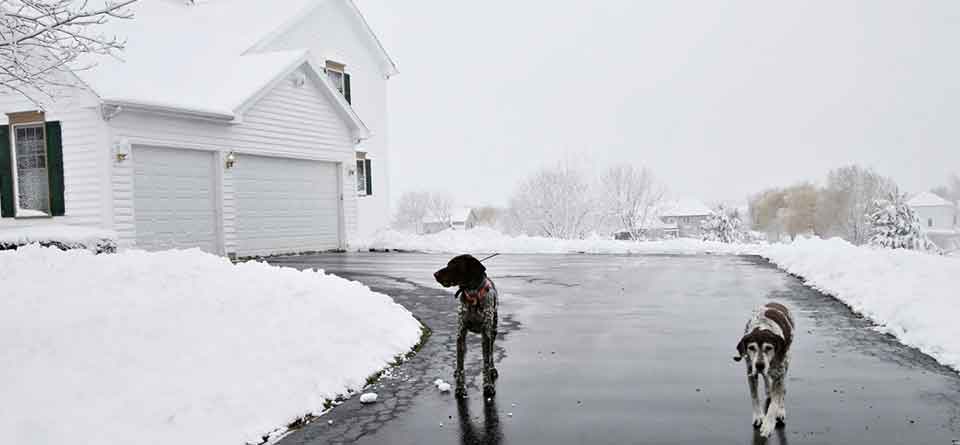When it comes to keeping your home warm and comfortable, it’s easy to understand the importance of insulation. Your garage, on the other hand, is likely the largest uninsulated space in your home. An ordinary garage door offers plenty of protection against strong winds, but these doors do little to retain indoor heat or block out cold temperatures during the winter.
If you’re looking to improve your home’s energy efficiency this winter or if you just want to stay warm and comfortable, it may be worth your while to consider an insulated garage door. The following explains the benefits as well as the drawbacks of buying and installing one for your home.
Garage Benefits
You probably don’t use your garage as a work space during the winter due to the cold temperatures this room experiences. An uninsulated garage door allows cold air to seep through while letting warm air escape. This also explains why keeping your garage area heated often seems like a struggle.
An insulated garage door provides a buffer against the outdoor cold, giving your garage a fighting chance when it comes to retaining indoor heat. If you’ve already insulated other parts of your garage, adding an insulated door can help make your garage easier to heat throughout the winter.
Even if you’re not actively heating your garage, an insulated door means you won’t have to warm up your car as much before heading out in the morning.
In addition, the built-in insulation makes an insulated garage door quieter than similar, uninsulated doors. You won’t have to hear the usual rattles and creaks as you open and close your garage door. If you’re tired of your garage door announcing your comings and goings, then it may be worth your while to invest in an insulated door.
Home Benefits
The benefits of having an insulated garage door can also extend to the rest of your home, especially if you’re looking to eliminate as many avenues of heat loss as possible. Your home will often lose its heat through the garage space. During the winter months, a typical unheated garage space may only be a few degrees warmer than the outdoor air.
Installing an insulated garage door can help significantly reduce the amount of heat your home loses through the garage, resulting in reduced energy consumption and lower energy costs in the long run.
Potential Drawbacks
Although insulated garage doors offer plenty of great advantages, they also have potential downsides. One such downside involves the added cost of an insulated garage door versus a standard door. According to recent data from Fixr, the unit cost of an insulated nine-foot wide standard-grade garage door is $779, compared to $572 for an uninsulated economy-grade door of the same width.
When buying an insulated garage door, you’re paying extra for the insulation and the extra layer of metal incasing the insulation. Although these extra costs can be offset by the money you’ll save in heating and cooling expenses, buying an insulated garage door may not be the best choice if you’re upgrading your door on a tight budget.
Another potential drawback is increased weight. An insulated garage door will be significantly heavier than its non-insulated counterpart and the increased weight can place greater strain on existing garage door components, including the springs and your garage door opener.
To keep premature wear and tear as well as unexpected breakdowns from becoming an issue, it’s usually best to upgrade and readjust crucial garage door components when upgrading your garage door.
Pre-Insulated Doors versus Insulation Kits
You also have the option to add insulation to your existing garage door. However, your ability to do this depends on a wide variety of factors, including the type of garage door and your DIY skills. In addition, you’ll be responsible for carefully choosing the insulation R-value that works best for your application. Nevertheless, adding your own insulation is a cost-effective option if you’re on a tight budget.
A pre-insulated garage door, on the other hand, ensures that you receive a product that offers the best possible fit and finish. You also won’t have to worry about any issues that could pop up after installing your own insulation, such as the insulation losing adhesion and falling off when the door is open.
A professionally insulated garage door also offers a more finished interior appearance due to its second metal layer. Most DIY installations leave the insulation exposed to the elements, resulting in a rough and unfinished look. Last but not least, you can also rest easier knowing that your insulated garage door is covered under a warranty.
If you’re thinking about purchasing an insulated garage door for your home, be sure to contact our professionals at Raynor Door Company for our service and expertise. We can help you find the solution that meets your needs.


